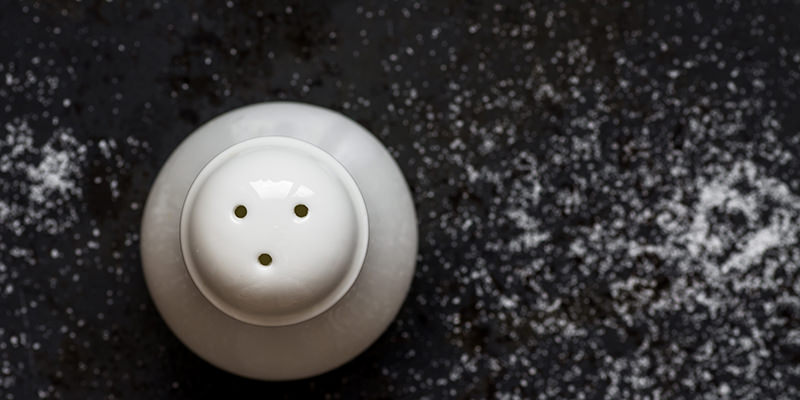You know that thing that deer love for some reason, but your Uncle Teddy is supposed to be cutting down on? The stuff you secretly add to homemade soup, and inadvertently gorge on in canned soup? It’s the difference between a greasy hot potato stick and a wonderful French fry. It’s salt. And yes, you should be putting it in your cocktails.
We’re not talking about that chunky Margarita salt rim; we’re talking about the judicious addition of some NaCl to a whole bunch of your favorite cocktails. (Though if you think about it, it’s strange we’ve only recently begun thinking about salting our cocktails when that Margarita rim seems to work so well.)
Salting cocktails isn’t new—certainly not in the industry. Bartenders have been shaking salt into their cocktail shakers(or more often dropping it via solution)for several years now, and we have intrepid experimental bartenders like Kirk Estopinal and Maks Pazunkiak to thank for that. These New Orleans-based bartenders started playing with salt years ago—Estopinal made a cocktail called The Search for Delicious with Cynar, and wanted to “season” the artichoke flavor in the Cynar with salt.
Another bonus of adding salt to a drink with a bitter digestivo like Cynar: salt can help suppress bitterness. But why? Where does salt get its pronounced ability to…well, pronounce flavors?
Estopinal and Pazuniak found their answers French chemist/chef in Hervé This’ book Molecular Gastronomy: Exploring the Science of Flavor. Among other things, salt “increases the ionic strength of aqueous solutions”—meaning water-based—“making it easier for odorant molecules to separate themselves from food.” Basically if you put salt into a broth, or another water-based solution (say, a cocktail?), it’ll free aromatic compounds, giving you more overall flavor.
Now what about salt and bitterness? Experiments have shown that salt actually masks bitterness better than sugar (it can even apparently make tonic taste like “sugar water”). This is why you should add salt to your coffee and to that sugar you’re sprinkling on your grapefruit (basically salt is part of a balanced breakfast). It’s also why salt works so well in Campari-based cocktails, or anything else made with a partially bitter ingredient. Salt won’t stamp out bitterness entirely, nor should it; in a cocktail, bitterness provides edge, structure. But salt will temper bitterness, meanwhile bringing out other aromatic compounds and—bonus points—gently amplifying acidity.
Before you salt a cocktail, you should bear in mind, just like with any other kind of seasoning you’re doing, quantity matters. Too much salt actually dulls acidity. As for what cocktails are prime candidates for sodium chloride? Here are a few suggestions. But as with salt use throughout history and the world over, it’s a matter of taste.
Negroni
Salt will temper some of the bitterness of the Campari.
Daiquiri
A bit of salt will play up the citric acid.
Vodka Gimlet
More acidity for salt to play in (you can make it with gin or vodka)
Gin and Tonic
Salt will suppress some of the bitterness of the tonic
The Hanky Panky
Not only the creation of the awesome Ada Coleman, but like a Negroni with Fernet, a great ingredient for salt to play around in.

